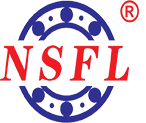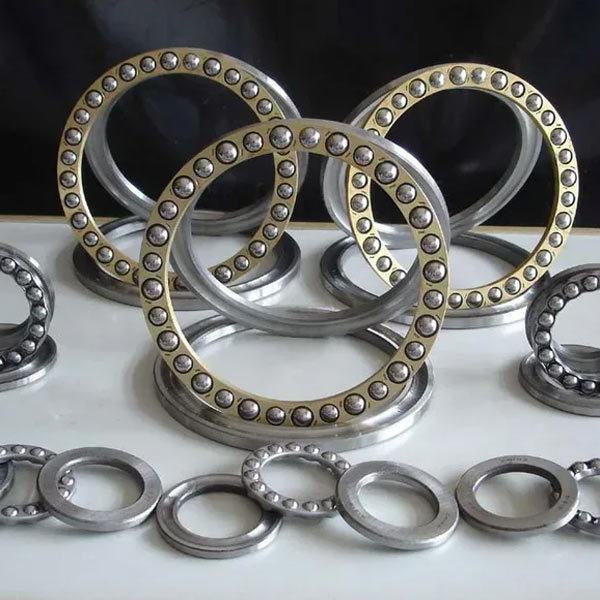22
2025
-
05
Smart bearings: the integration of the Internet of Things and Industry 4.0
Smart bearings are a typical example of the integration of the Internet of Things and Industry 4.0. The following is a related introduction: Key technologies in smart bearings
Smart bearings are a typical example of the integration of the Internet of Things and Industry 4.0. The following is a related introduction:
Key technologies in smart bearings
Sensor technology: Various sensors are integrated into smart bearings, such as temperature, vibration, pressure and other sensors. Taking the robot bearings on the smart production line of automobile manufacturing companies as an example, the sensors can monitor the temperature and vibration of the bearings in real time. Once the temperature rises abnormally or the vibration amplitude exceeds the normal range, the system will quickly issue an early warning to avoid delays in the production line caused by robot failures.
Data collection and transmission technology: Through industrial Internet of Things gateways and other devices, the data collected by the sensors are collected, analyzed and transmitted so that the data can flow in an orderly manner between devices. For example, in the digital smart factory of bearings, the data collection layer uses special protocols to collect and analyze the data collected by sensors in key equipment such as grinders and heat treatment furnaces, and transmits them to the platform layer through 5G industrial WiFi and optical fiber networks.
Data analysis and processing technology: Use big data analysis, artificial intelligence and other technologies to conduct in-depth analysis of the collected data. For example, Schaeffler's smart bearings can predict the failure trend of bearings in advance through the analysis of a large amount of operating data, realize predictive maintenance, and improve the availability and production efficiency of equipment.
Application scenarios of smart bearings in Industry 4.0
Application on smart production lines: In smart production lines in industries such as automobile manufacturing and electronic equipment manufacturing, smart bearings are widely used in key components such as industrial robots and automated transmission equipment. For example, after a high-end CNC machine tool manufacturer adopted smart manufacturing bearings, the machining accuracy of the machine tool was improved from 0.01mm to 0.001mm, the surface roughness was reduced by 50%, and the machining efficiency was increased by 30%.
Equipment status monitoring and fault diagnosis: Smart bearings can monitor the operating status of the equipment in real time, and timely detect potential equipment failures through the analysis of sensor data. For example, SKF's intelligent lubrication system captures the pressure fluctuations of the lubrication point through pressure sensors, accurately predicts the bearing wear trend, and extends the planned maintenance cycle by 30%.
Remote monitoring and management: With the help of Internet of Things technology, smart bearings can achieve remote monitoring and management. Operators can view the operating status, performance data and other information of the bearing in real time through mobile phone APP or WEB terminals, and can remotely monitor and manage the equipment no matter where they are, which improves the efficiency and convenience of equipment management.
The significance of smart bearings in promoting the development of Industry 4.0
Improve production efficiency: through real-time monitoring and predictive maintenance, reduce equipment downtime, improve equipment utilization, and thus improve production efficiency. For example, the smart production line solution provided by Zhongyi Intelligent to a group in Ningbo has increased production efficiency by more than 70% compared with the original.
Improve product quality: smart bearings can ensure the stable operation of equipment, improve processing accuracy and product quality. For example, in machine tool processing, smart bearings can effectively reduce vibration and errors and improve the processing quality of parts.
Reducing costs: Through predictive maintenance, the maintenance and replacement costs of equipment are reduced; at the same time, improving production efficiency and product quality also indirectly reduces production costs. For example, after an automotive parts manufacturer introduced the SKF intelligent lubrication system, the cumulative cost savings within 3 years by reducing downtime, reducing maintenance costs and extending equipment life were enough to purchase a new production equipment.
Promote industrial upgrading: The application of smart bearings has promoted the transformation and upgrading of traditional manufacturing industries towards intelligence and digitalization, and promoted the development of Industry 4.0. For example, the digital smart factory for bearings has achieved full-process intelligent production from order acquisition, product design to packaging and logistics by integrating technologies such as industrial Internet, big data, and AI digital twins.

WhatsApp:+8613211157555
Tel: +8613211157555
Address:Room 1106, 11th Floor, No. 23, Fengshan West Road, Jinbang Community, Daliang Street, Shunde District, Foshan City, Guangdong Province
Copyright 2025 Schaeffler (Guangdong) Transmission Technology Co., Ltd. SEO Business license




